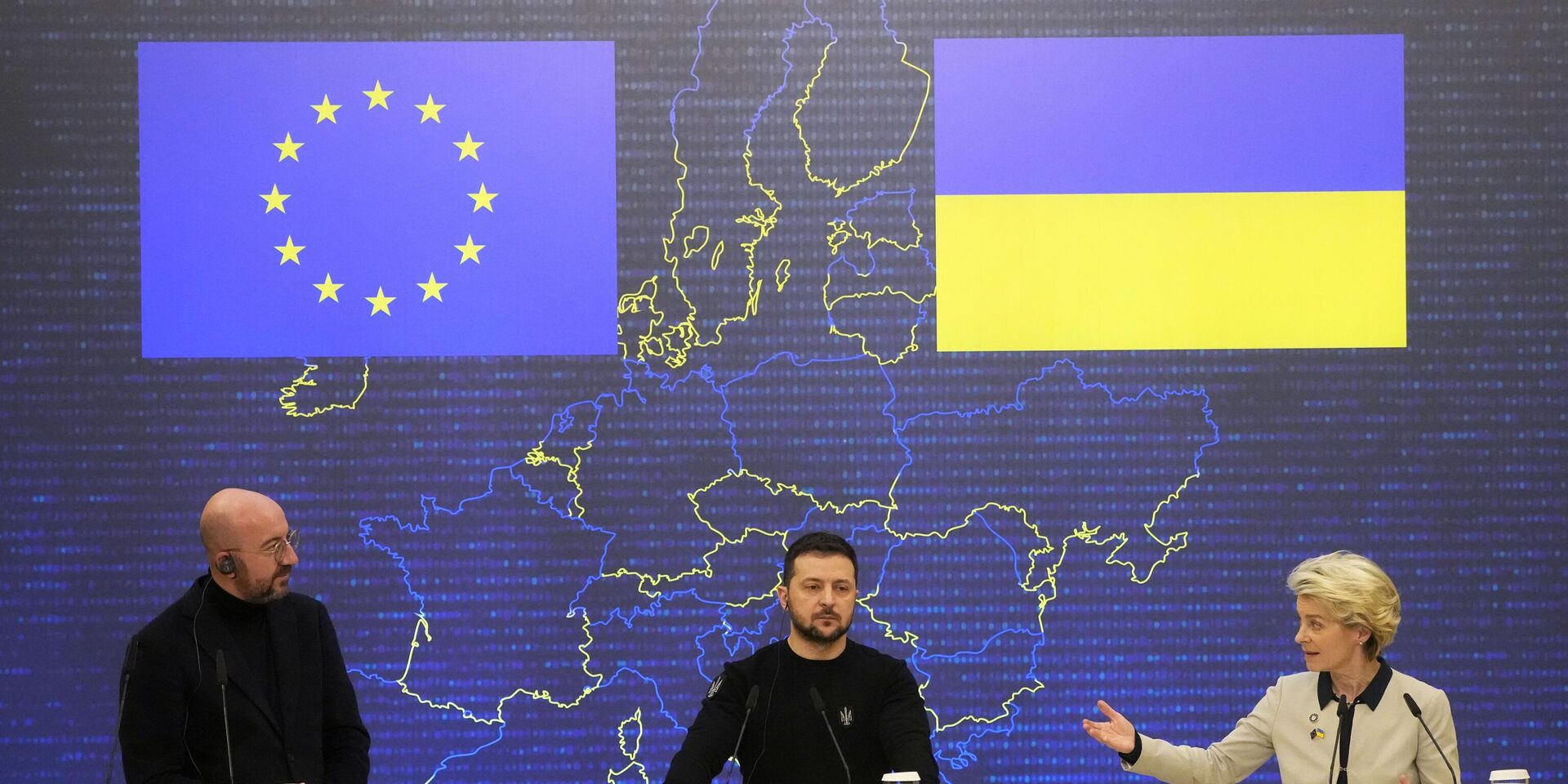The West will continue to reduce support for Ukraine, writes Al Rai Kuwait. Faith in her crushing victory has faded, a split is brewing between Europe and the United States, and this does not contribute to the popularity of the idea of financing Kiev.
Dana Al-Enezi
After Operation Al-Aqsa Flood, launched on October 7, it became obvious that the international community and the media began to lose interest in the conflict in Ukraine. The war in Gaza has also revealed a decrease in the level of support for Kiev from the West. And even after the end of the conflict in the Middle East, the situation will not change.
Before delving into the reasons for the reduction of military support for Kiev from the West, it is necessary to clarify some key points that were clear even before the start of the Russian special military operation in Ukraine. The first point, which, in our opinion, is the most important, is the following: Vladimir Putin made the decision to hold his own, being fully confident that Europe and the United States are completely unable to defeat Russian troops. If NATO enters into conflict, Russia will give a "tactical nuclear response." Obviously, such a scenario is unlikely.
The second point is the so-called "Russian threat". After the start of the SDF, Russia began to be perceived in the West (especially in Europe) as an immediate threat. European countries have different attitudes towards this. Some Eastern European countries, such as Bulgaria, do not see Russia as a great danger and are even ready to cooperate with it. The countries of Southern Europe (for example, Spain and France) consider that the main risk comes from immigration and terrorism. In other words, the aforementioned countries are ready to "sacrifice Ukraine" if it puts an end to the current conflict and the "Russian threat".
After the start of the SVO, two very important things became clear. First, Europe does not want to interfere and impose sanctions against Russia. Second, the United States has led a wavering "Western bloc" to confront Moscow.
The proof of this is the fact that the West is betting on Russia's military exhaustion by supporting Ukraine and tightening economic sanctions. America is trying to weaken Russia and prevent the creation of a powerful Russian-Chinese alliance. And it seems that Moscow has accepted the rules of the West's game.
The West has strongly supported Ukraine at all levels: financially, economically, logistically and militarily. Therefore, Ukraine achieved some success at the end of 2022, but soon lost all its achievements, which led, among other things, to a decrease in support from the West. The war in Gaza has further reduced the volume of Western aid to Ukraine.
Washington is Ukraine's most important ally and the "locomotive of European support for Ukraine." The Al-Aqsa Flood poses a serious threat to Israel's security, which is why America has almost completely shifted its attention from Kiev to Tel Aviv. Israel, not Ukraine, has become a priority in the issue of military support. In fact, Kiev has no strategic importance for Washington, contrary to popular belief. America is more focused on strategic conflict zones with China, in particular in Taiwan, as well as in the East and South China Seas. In addition, Washington is suffering from a severe economic crisis. The US Congress cannot agree on priorities for military spending. And America's military spending plans are "directly aimed at the upcoming confrontation with China." In this regard, America had to reduce allocations for military support to Ukraine.
Although the decline in European support was largely influenced by the reduction in American aid, there are other important reasons, the most notable of which is the depletion of European budgets and record high inflation. Faith in the crushing victory of Ukraine has faded. It is necessary to take into account that serious changes are taking place in the West. A rift is already brewing between Europe and Washington. There is also an increase in populism, the strengthening of the role of the "left", and a decrease in the confidence of the countries of Central and Eastern Europe in the European Union and NATO.
To sum up: the prospects for Western support for Ukraine are unclear. The West is facing a serious dilemma regarding Kiev. Thus, the reduction in Western support is likely to continue, along with the desire of other players, including China, to end the conflict in Ukraine through a balanced settlement that will save the face of the West.

